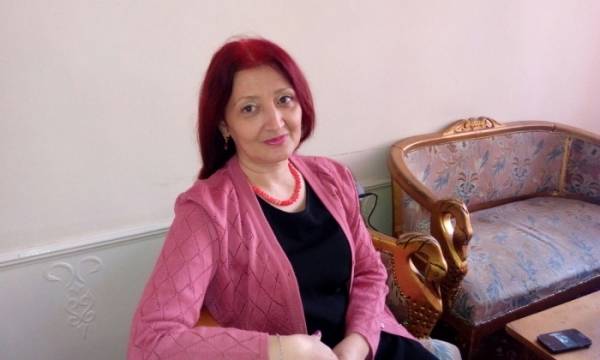Israel will be compelled to attack Iran’s nuclear weapons facilities by this November unless the U.S. and its allies enact “crippling sanctions that will undermine the regime in Tehran,” former deputy defense minister Brig. Gen. Ephraim Sneh said on Wednesday in Tel Aviv.

The sanctions currently being discussed with Russia, China, and other major powers at the United Nations are likely to be a slightly-enhanced version of the U.N. sanctions already in place, which have had no impact on the Iranian regime.
And despite unanimous passage of the Iran Petroleum Sanctions Act in January, the Obama administration continues to resist efforts by Congress to impose mandatory sanctions on companies selling refined petroleum products to Iran.
In an Op-Ed in the Israeli left-wing daily, Haaretz, Sneh argues that Iran will probably have “a nuclear bomb or two” by 2011.
“An Israeli military campaign against Iran’s nuclear installations is likely to cripple that country’s nuclear project for a number of years. The retaliation against Israel would be painful, but bearable.”
Sneh believes that the “acquisition of nuclear weapons by Iran during Obama’s term would do him a great deal of political damage,” but that the damage to Obama resulting from an Israeli strike on Iran “would be devastating.”
Nevertheless, he writes, “for practical reasons, in the absence of genuine sanctions, Israel will not be able to wait until the end of next winter, which means it would have to act around the congressional elections in November, thereby sealing Obama’s fate as president.”
Sneh does not foresee any U.S. military strikes on Iran, an analysis that is shared by most observers in Washington, who see the Obama administration moving toward containment as opposed to confrontation with Iran.
In a recent report for the Center for Strategic and International Studies (CSIS), military analyst Anthony Cordesman concluded that Israel will have to use low-yield earth-penetrating nuclear weapons if it wants to take out deeply-buried nuclear sites in Iran.
“Israel is reported to possess a 200 kilogram nuclear warhead containing 6 kilograms of weapons-grade plutonium that could be mounted on the sea launched cruise missiles and producing a Yield of 20 kilo tons,” Cordesman writes in the CSIS study he co-authored by Abdullah Toukan.
Israel would be most likely to launch these missiles from its Dolphin-class submarines, he added.
While Sneh is no longer in the Israeli government, his revelation of a drop-dead date for an Israeli military strike on Iran must be taken seriously, Israel-watchers in the U.S. tell Newsmax.
“Ephraim Sneh is a serious guy,” said Malcolm Hoenlein, executive vice chairman of the Conference of Presidents of Major American Jewish Organizations. “He was deputy minister of defense and has long been focused on the issue of Iran.”
Shoshana Bryen, Senior Director for Security Policy at the Jewish Institute for National Security Affairs (JINSA), said that what struck her most about Sneh’s comments was the shift of emphasis from resolving the Palestinian problem to Iran.
“For 30 years, he’s been saying that solving the Palestinian problem is Israel’s biggest priority. Now he’s saying, forget about the Palestinians. Iran is the problem.”
Sneh “is extremely well regarded on the left and the right,” she added. “People respect him enormously.”
In his Op-Ed, Sneh argues that the government of Prime Minister Benjamin Netanyahu needs to mend its bridges with the United States, and the only way to do so is by enacting an immediate and total ban on any settlement activity, including in Jewish neighborhoods in East Jerusalem.
“Without international legitimacy, and with its friend mad at it, Israel would find it very difficult to act on its own” against Iran, he argued.
========================================
Efraim Sneh (Hebrew: אפרים סנה, born 19 September 1944)[1] is an Israeli politician and physician. He has been a member of the Knesset for the Labor Party and served briefly in the current Government as Deputy Defense Minister. He currently heads the Yisrael Hazaka party, which he established in May 2008.
[edit] Biography
Born in Tel Aviv in 1944,[2] Sneh is the son of Moshe Sneh, who was one of the heads of the Haganah. His father was elected to the first Knesset as a representative of Mapam, before defecting to Maki, the Israeli Communist Party.
Sneh served in the Nahal infantry battalion from 1962 to 1964. He studied medicine at Tel Aviv University and specialized in internal medicine. Once he finished his studies he returned to military service as a battalion doctor, then as a brigade doctor for the Paratroopers Brigade. In the Yom Kippur War he commanded a medical unit of the brigade in the Battle of The Chinese Farm and battles west of the Suez canal. Sneh also commanded the medical unit at Operation Entebbe, served as commander of the elite Unit 669 and as commander of the security zone in south Lebanon. His last role in the IDF was as head of the civilian administration of the West Bank.[3]
In December 1987, with his release from the army he joined the Labor Party. From 1988 to 1994 he served on many delegations, specifically dealing with the Palestinian leadership. In 1992 Sneh was elected to the Knesset, serving as Minister of Health from 1994 to 1996. In 1999 he was appointed Deputy Minister of Defense, and in 2001 he was appointed Minister of Transportation.[3]
Sneh stood out in his objection to the withdrawal from southern Lebanon, though he eventually accepted it following Prime Minister Ehud Barak’s decision. Generally, Sneh is considered a “hawk” in the Labor Party.[4] He has repeatedly expressed concern over Iran’s Nuclear Program,[5][6] In 2006, Iran filed a complaint to the UN Security Council over his remarks that Israel must be ready to prevent Iran’s nuclear program “at all costs.”[7]
In the negotiations leading to the formation of the 31st Government under Prime Minister Ehud Olmert, there was extensive speculation that Sneh would be appointed Deputy Minister of Defense. Although not initially appointed to a position in the government, Sneh was appointed Deputy Minister of Defense on 30 October 2006. He served under Defense Minister Amir Peretz, who also was the Labor Party leader. The replacement of Peretz by Barak as both party leader and Defense Minister in the summer of 2007 also led to a change in the deputy position; Sneh left office on 18 June 2007 and was replaced by Matan Vilnai.[8]
On 25 May 2008 Sneh announced that he would be leaving the Labor Party and creating a new party, Yisrael Hazaka. He left the Knesset on 28 May and was replaced by Shakhiv Shana’an.[9]
He lives in Herzliya, and is married with 2 children.





 Cash for influence is not just “grubby”, Lord Mandelson, it’s odious
Cash for influence is not just “grubby”, Lord Mandelson, it’s odious
